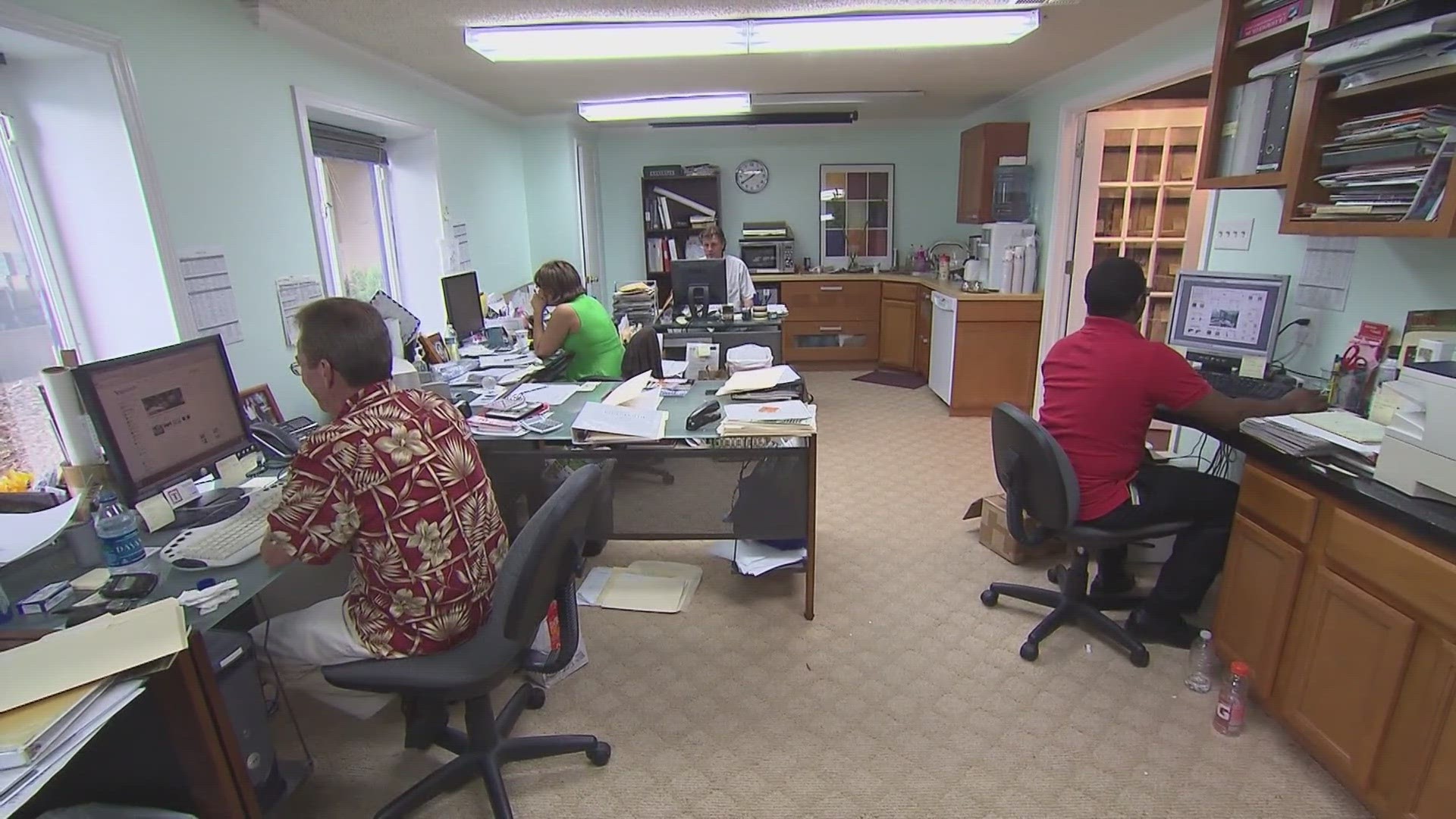DALLAS — Read this story and more North Texas business news from our partners at the Dallas Business Journal
Dallas workers are coming back to the office more than other major U.S. cities, a new report says.
The Dallas area, not including Fort Worth, ranked No. 1 in a Placer.ai report analyzing February foot traffic data for office properties across 11 major U.S. metro areas. Visits to local offices were up 25% in February 2024 from February 2023. Dallas visits also beat the national average increase of 18.6% and far outpaced the region's January increase of 7.2%.
The study looks at commercial office buildings, some with retail offerings on the ground floor, but not buildings that have both residential and commercial uses.
Placer.ai used cell phone data to determine foot-traffic patterns for about 1,000 office buildings across the country, so the research may be a better indicator of how many people are physically walking into the office than looking at how much of the market is leased up.
Many employers continue to lease space not physically occupied by workers, especially with so many now working from home. Dallas office vacancy has sat at about 26% for the last few quarters, the highest level since the late-'80s real estate recession, according to real estate brokerage Avison Young.
"Occupancy is slower to budge higher even if office visits are stable-to-increasing," said Nick Villa, an economist for Moody's Analytics, in a separate report released April 2 analyzing the Placer.ai data.
In the research, Dallas was followed by San Francisco, where office visits increased 24% year-over-year but has a longer road to pre-pandemic recovery, with visits down 46% from 2020 — more than any other market surveyed.
Dallas office visits were only down 21.4% from February 2020, the third-lowest decline of the reported metros and above the national average decline of 31.3%.
This comes as reports say major financial institutions with large corporate presences in Dallas-Fort Worth, such as Goldman Sachs, Citigroup, JPMorgan Chase & Co. and Bank of America, have been strictly enforcing return-to-work mandates nationwide.
"As the labor market continues to cool, the power inevitably shifts back to employers who could become more emboldened to mandate [return-to-office] policies," Villa wrote.
Other headlines:

